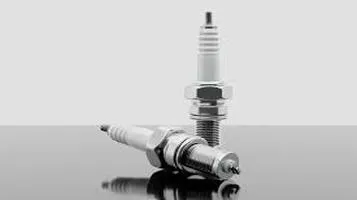The Unsung Heroes of Internal Combustion Engines: A Comprehensive Review of Spark Plugs
Spark plugs are essential components in internal combustion engines, responsible for igniting the air-fuel mixture within the engine cylinders. These small, yet powerful devices create an electric spark that initiates combustion, powering the engine. Typically made from durable materials such as nickel alloys or platinum, spark plugs are designed to withstand high temperatures and pressures. They consist of a central electrode, an insulator, and a ground electrode. Properly functioning spark plugs are crucial for engine efficiency, performance, and fuel economy. Over time, spark plugs can wear out or become fouled, leading to misfires or reduced engine power. Regular maintenance and timely replacement of spark plugs are vital to ensure optimal engine operation and to extend the lifespan of the vehicle.

Spark plugs are often one of the most overlooked yet crucial components in an internal combustion engine. These small but mighty devices play an instrumental role in igniting the air-fuel mixture within the engine cylinders, thus enabling the engine to produce power. Despite their relatively simple structure, the importance of spark plugs cannot be overstated. This review aims to dissect the nuances of spark plugs, evaluating their types, performance, longevity, and overall impact on engine efficiency.
Types of Spark Plugs
There are several types of spark plugs, each designed to meet specific needs and conditions. The most common types include:
1. Copper Spark Plugs: These are the most traditional and cost-effective spark plugs. They have a solid copper core and a nickel alloy electrode. While they offer excellent conductivity, they tend to wear out faster than other types, typically requiring replacement every 20,000 miles.
2. Platinum Spark Plugs: Featuring a platinum disc welded to the center electrode, these spark plugs offer better longevity than copper ones. They can last up to 60,000 miles and provide reliable performance, making them a popular choice for modern vehicles.
3. Double Platinum Spark Plugs: These are essentially an upgrade from single platinum plugs, featuring platinum on both the center and ground electrodes. Double platinum plugs are designed for "waste spark" ignition systems and offer even longer lifespans, often exceeding 100,000 miles.
4. Iridium Spark Plugs: Known for their exceptional durability and performance, iridium spark plugs have an iridium electrode that can last up to 120,000 miles. Iridium, being one of the hardest metals, ensures minimal wear and tear, making these plugs ideal for high-performance engines.
5. Silver Spark Plugs: These are less common but are highly efficient in terms of thermal conductivity. They are often used in older European performance cars and motorcycles.
Performance and Efficiency
The performance of a spark plug can be measured in various ways, including its ability to conduct electrical energy, resist fouling, and withstand extreme temperatures and pressures. High-quality spark plugs contribute to smoother engine operation, improved fuel efficiency, and reduced emissions.
For instance, iridium and platinum spark plugs are known for their superior performance. The fine wire design and precious metal construction allow for a more concentrated and powerful spark, which ensures complete combustion of the air-fuel mixture. This results in better throttle response, increased fuel economy, and lower emissions.
Longevity and Maintenance
Longevity is a critical factor when choosing spark plugs. While copper plugs are the least expensive, their shorter lifespan means frequent replacements, which can add up in terms of both cost and labor. On the other hand, platinum and iridium plugs, although more expensive upfront, offer longer service intervals, making them more cost-effective in the long run.
Regular maintenance is crucial for ensuring the optimal performance of spark plugs. It's advisable to inspect and clean the plugs at regular intervals, even if they are designed to last for 60,000 miles or more. Signs of wear, such as electrode erosion or carbon buildup, can indicate that it's time for a replacement.
Impact on Engine Health
Spark plugs have a direct impact on the overall health of the engine. Poor quality or worn-out spark plugs can lead to incomplete combustion, resulting in poor engine performance, reduced fuel efficiency, and increased emissions. They can also cause engine misfires, which can damage other engine components over time.
Conversely, high-quality spark plugs ensure that the engine runs smoothly and efficiently. They provide a reliable spark that ignites the air-fuel mixture at the right time, ensuring optimal combustion. This not only enhances engine performance but also extends the lifespan of the engine components.
Conclusion
In summary, spark plugs may be small, but their function is vital for the efficient operation of an internal combustion engine. The choice of spark plug can significantly impact engine performance, fuel efficiency, and longevity. While copper spark plugs are cost-effective, platinum and iridium plugs offer superior performance and longer lifespans. Regular maintenance and timely replacement of spark plugs are essential for maintaining engine health and achieving optimal performance.
Investing in high-quality spark plugs is a smart decision for any vehicle owner. They may come at a higher initial cost, but the benefits in terms of performance, efficiency, and longevity make them well worth the investment. Whether you are a casual driver or a performance enthusiast, choosing the right spark plugs can make a world of difference in your driving experience.
---






